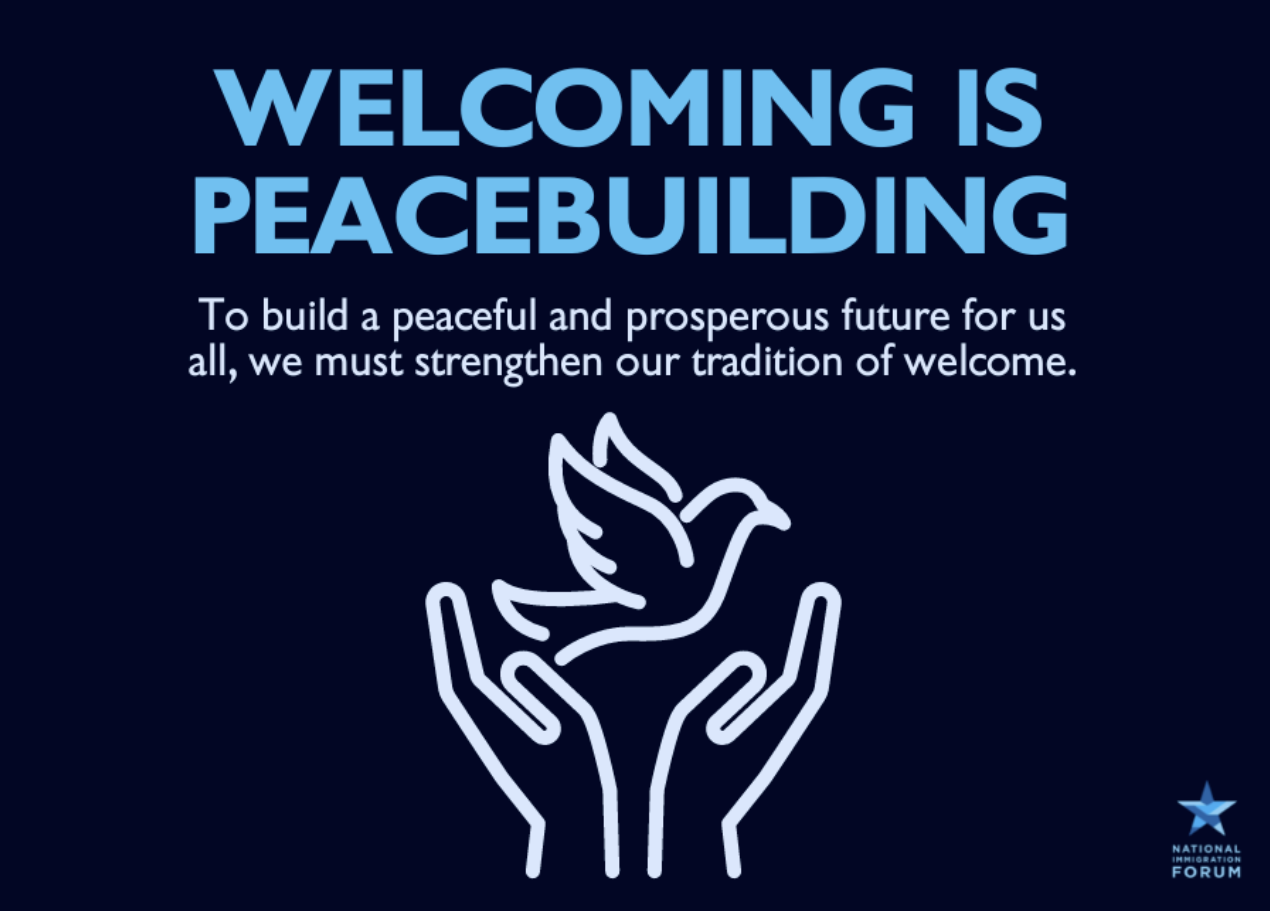B Stands for Bienvenidos
Good afternoon,
We would like to begin this email by remembering Turkey and Syria after experiencing a devastating earthquake earlier this week. Our thoughts and prayers are with the people affected, many of whom were seeking refuge from the horrors of war, as well as those who are on the ground offering support.
*****
As we take in news about immigration, it can be difficult to see a narrative of welcome.
While President Biden spoke of the need for Congress to find bipartisan solutions in his State of the Union address earlier this week, we see contentious arguments from Member of Congress during hearings on "Biden’s Border Crisis", which have only just begun. DACA recipients continue to live in limbo as Texas and eight other states have filed the motion to halt the recent DACA rule, which would take away the opportunity for Dreamers to apply for work authorization and would make them
vulnerable to deportation. And there continues to be the need for permanent solutions for Afghans, farmworkers and the situation at the border.
However, while these discussions may be at the forefront in media, many advocates and activists across the U.S. are working to change the narrative into a welcoming one through new and already existing opportunities.
In January, the Biden Administration launched the new Welcome Corps, a permanent opportunity for Americans to sponsor refugees to come to the U.S. and accompany them as they adjust to a new life here. Modeled from aspects of the parole programs set up to bring Afghans and Ukrainians to the U.S., this program is meant to complement the
work of refugee resettlement agencies and expand the country’s capacity to welcome a higher number of refugees. There is no doubt that there is much to be done to improve the United States Refugee Admissions Program (USRAP), which includes strengthening refugee resettlement agencies who are the experts in welcoming refugees in the country, and this new program is one way to strengthen it.
The Welcome Corps will roll out in two phases. To start, private sponsors will be matched with refugees whose cases have already been approved. Later this year, private sponsors will then be able to identify refugees to refer to the program for sponsorship. With the Welcome Corps, through the right training and resources, people across the country will have the opportunity to work together to welcome refugees into their communities.
This is an exciting new opportunity as many Americans want to welcome immigrants and refugees. Communities across our country participated in welcoming Afghans over the last year and a half. By engaging in opportunities like private sponsorship, we can actively work against the negative narratives surrounding immigration, demonstrating our desire to be a nation of welcome.

(Source: National Immigration Forum Twitter)
We continue to call on Congress to work together to find meaningful, long-term solutions but we don’t need to wait for Members of Congress to make a difference. We can go into our communities and practice welcome right there. For some of us, that may look like becoming a private sponsor. For others, it could be volunteering at your local resettlement agency or reaching out to an immigrant in your neighborhood and becoming their friend. We can and should work to create a culture of welcome where we are. Let’s work together to be communities, and ultimately a nation, that welcome.
Stay healthy and hopeful,
Allison
Allison Bassett
Senior Field and Constituencies Associate
National Immigration Forum
NEWS CLIPS TO NOTE:
WASHINGTON POST: Biden weighs border deal that would deport non-Mexicans to Mexico
POLITICO: DOJ says end of health emergency will terminate Title 42 policy and moot Supreme Court case
THE HILL: Partisan rift widens on immigration policy, as seen in two House hearings
NPR: Green card applicants are likely to face fee hikes under proposed changes
THE GUARDIAN: ‘I can’t plan ahead’: Dreamers speak out as US program faces new threat
|